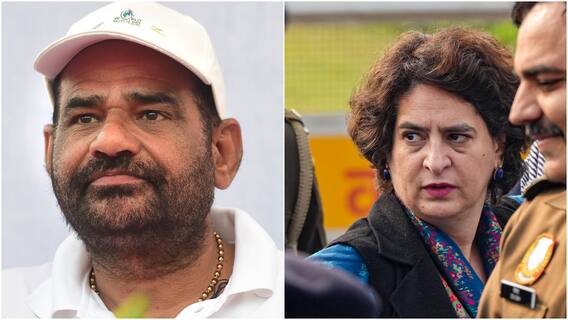Theranos Fraud Case: India-Origin Ramesh Balwani Sentenced To 13 Years In Prison
The 57-year-old former executive was sentenced to 13 years in prison for fraud that risked patient health by misrepresenting the accuracy of Theranos blood analysis technology

Theranos’ former chief operating officer, Indian-origin Ramesh ‘Sunny' Balwani, has been sentenced to nearly 13 years in prison for fraud on Wednesday after the court found him guilty of risking patient health and defrauding investors of the blood testing company for millions of dollars.
The 57-year-old former executive was sentenced in California to 12 years and 11 months in federal prison for fraud that risked patient health by misrepresenting the accuracy of Theranos blood analysis technology and defrauded the company's investors of millions of dollars, said US Attorney Stephanie Hinds, according to the news agency PTI report.
Apart from the 155 months prison term, Balwani has been sentenced to three years of supervision following his release from prison by US District Judge Edward Davila. A future court hearing is due to determine the amount of restitution to be paid by Balwani.
Balwani has been asked to surrender on March 15 next year to start serving his prison sentence.
What’s the Theranos fraud case?
Balwani was employed with the Palo Alto-based blood testing company founded in 2003 by his former girlfriend Elizabeth Holmes once touted as Silicon Valley’s rising star. Balwani's family moved to India from Pakistan where he was born. Later he moved to the US from India during the 1980s and studied at the University of Texas.
He worked in the company from September 2009 through July 2016. In fact, Holmes was sentenced to 11 years and 3 months in federal prison and asked to surrender to begin serving her sentence on April 27, 2023.
Balwani was 37 when he met then-18-year-old Holmes.
Holmes and Balwani “stretched this idea to a place much farther than the law allows and in so doing, put vast amounts of investor dollars at risk," Hinds said. The court also made clear that his decision to deceive doctors and patients also put the health of patients at risk.
Balwani, in a desire to become a Silicon Valley titan, valued business success and personal wealth far more than patient safety, the judge observed.
As per the trial evidence, the fraud ensured “spectacular personal wealth" to Balwani, who owned nearly 30 million shares of Theranos – over 6 per cent of the company – which were worth hundreds of millions of dollars at the peak of the fraud.
During his employment at the now-defunct Theranos, Balwani remained as a board member, chief operating officer, and president.
Balwani and Holmes, who was the chairperson and CEO, claimed the start-up developed a “revolutionary blood analyzer" that could run any blood test by conventional labs using only a small blood sample drawn via a fingerstick, rather than the traditional draw from a vein.
FBI Special Agent in Charge Robert Tripp said Balwani not only deliberately concealed defects in Theranos' blood-testing technology to mislead investors, he knowingly put patients’ health at risk.
Trending News
Top Headlines








































